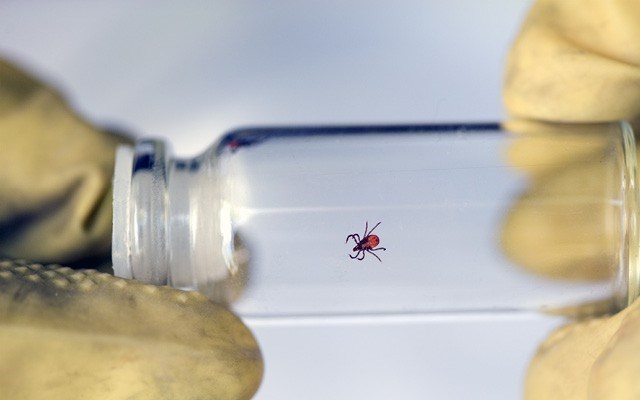If you go out in the woods today, you may want to watch out for ticks.
A new bacteria has been discovered in three cases of ticks retrieved from a child in central B.C. and two dogs in the Lower Mainland since June. All three ticks tested positive for a new strain related to the bacteria that causes Lyme disease. No symptoms of Lyme disease were detected in either the child or the dogs.
The new bacteria was first reported in ticks in the Midwest U.S. in six out of more than 9,000 samples tested, although the B.C. bacteria is slightly different than those found in the U.S.
"I'm very surprised," said Dr. Eleni Galanis, physician epidemiologist with the BC Centre for Disease Control (BCCDC). "Although we'd heard what the Americans had found, we didn't expect it to appear here first. I would have expected it to appear in Central Canada."
The risk to public health is extremely low. As for the new bacteria, Galanis said the discovery is a mystery and the extent of ticks with this new strain is not known.
"We don't know how it emerged," she said. "The Americans haven't even ventured an explanation. It could be that it's always been there at very low levels when we found it, or it could have recently emerged either because it was transported from another location — like the Midwest where it was found in the last few years — or through migrating birds or animals. It's just too early to tell right now."
Galanis said the BCCDC was alerted to the new bacteria, so it was spotted readily during national testing. The new bacteria is known as borrelia mayonii.
"Thankfully, it's very, very rare — just three positive ticks in over 20,000 ticks tested in B.C. and Canada since 2013," she said. "And even in the Midwest U.S., where they first identified borrelia mayonii, they only have six human infections. So that's a very, very small number."
Galanis said hikers and backcountry users should check for ticks within hours of outdoor exposure.
"You have several hours where the tick is just taking blood from you, and they only deposit back — or vomit back — some of that material after several hours of having taking their blood meal."
Although rare, the new bacteria is an alert to both residents and health authorities.
"It's a good opportunity to remind people to look out for ticks and tick bites, and we also wanted to let the medical community know because if patients were to present with symptoms, it seems the symptoms are slightly different, potentially a little bit more severe. So physicians know how to diagnose it," Galanis said.
More information on how to prevent contact and information on the bacteria and symptoms of infection, go to bccdc.ca.




